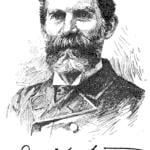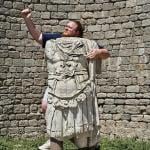My world … and welcome to it. (HT James Thurber) I’m not churchless or secular, but by far the majority of my friends, peers, and coworkers are. Although my university community is not yet the norm for the country as a whole, it may reflect a growing trend. Churchless is an increasing phenomenon in the US. Dave Kinnaman and the Barna Group have published the results of a series of surveys in a new book Churchless: Understanding Today’s Unchurched and... Read more
















